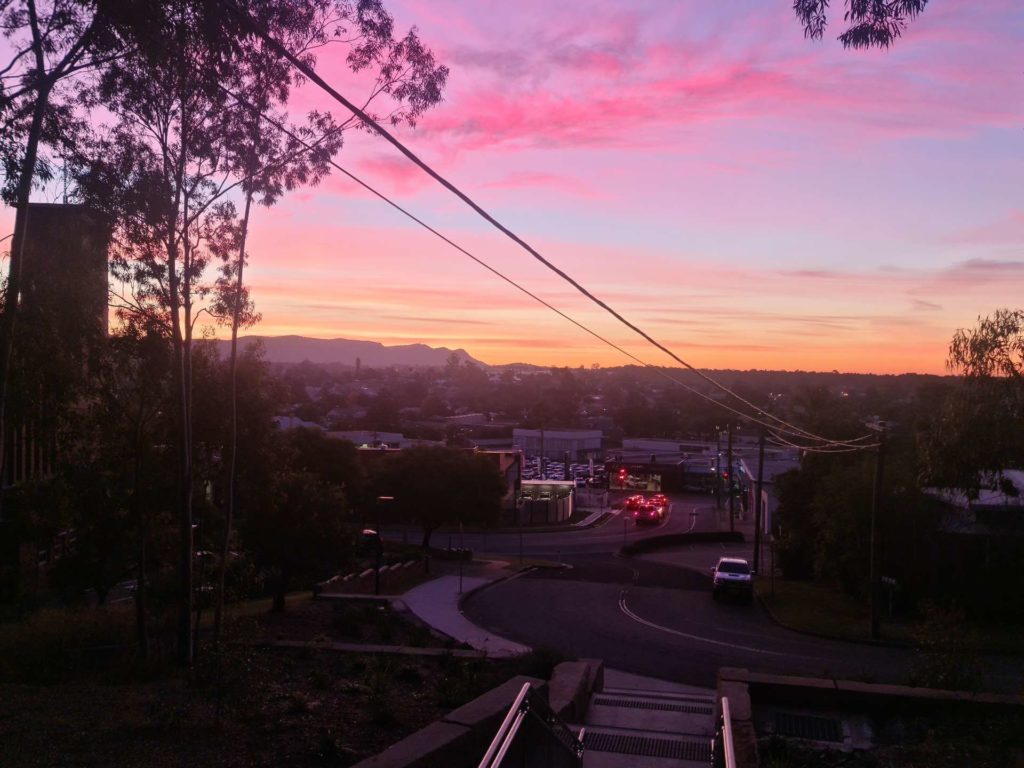I pay my respects to Mr Jamie Mitchell and Mr Phillip Grant, the two coalminers recently killed by a collapsing wall at the Austar Coal Mine in the village of Paxton in Cessnock. On Tuesday 15 April at 9.30 p.m. the first sirens were heard across the city of Cessnock. The sirens continued for the next 90 minutes, joined in their chorus by the sound of the rescue helicopter. All emergency services came in, but none went out that day. The people of Cessnock slept knowing that bad news would meet them in the morning but not knowing what that news would be.
Overnight, at a depth of 500 metres, 10 kilometres away from the point at which they entered the ground, a section of wall about 15 metres long, three metres high and weighing many tonnes collapsed onto Jamie Mitchell and Phillip Grant, killing them instantly. In that same section, just metres away, another six men who worked beside them as they went about their business were, by some random fortune, not also crushed. Two of those six men I proudly call my friends. The colleagues were desperate to try to help the fallen men but they could not possibly have saved them. The entire mine was immediately cleared to ensure that no further injury could occur. This started a 40-hour vigil that would not end until both bodies had been recovered and brought to the mine surface. Dozens of work colleagues manned the site around the clock, providing a guard of honour as each body was recovered and removed.
As one miner who was working on site at the time said, “When you’re underground, you look after each other’s back … we are like brothers down there.” As the son of a miner, a friend of dozens of miners, a regular attendee and supporter of the retired mineworkers’ network and a member of Parliament who represents thousands of mineworkers and their families, I concur with that sentiment entirely. The brotherhood of underground miners is a sentiment that is almost thick enough to touch. It is a brotherhood that few if any who do not go underground could ever understand. It is forged in the face of ever-present danger—the danger of death. When things go wrong in an underground mine, they can go terribly and tragically wrong. That is the place in which our underground coalminers work. That is the workspace in which they go about their humanly unnatural behaviour of digging, burrowing and mining in small tunnels underground.
The families of these two men will never again hold their sons, their husbands, their dads, their brothers or their uncles. The workmates of these two fallen men will not quickly or easily resume their lives. They will not readily want or be able to move on. This is the very dangerous and suddenly fatal environment that many of this State’s coalminers work in. While the rest of us simply switch on our lights, open our nice cold fridges and turn on our flat screen televisions, it is the coalminers of this State who make much of our electricity possible. They work in a space that can kill more quickly and swiftly than the time it takes to let out a single scream or cry for help.
I consider the importance of the work of our coalminers as equal to that of our police. I do not make this statement flippantly or lightly, but the truth is that the very fabric and structure of our society depends heavily on the toil of our coalminers. Since 1801 when coalmining began in the Hunter Valley more than 1,800 men and, more recently, one woman have died in the pursuit of an income and a lifestyle for their families. Their pursuits have provided immeasurable wealth and prosperity to New South Wales. This year alone $1.5 billion, or almost 3 per cent of the State’s budget, has come directly from coal royalties. In addition, billions more will come from the taxes, productivity, industry stimulus and GST revenues that are the results of the business created by coalmining.
The recent deaths in a coalmine in Cessnock have reopened many old wounds and memories. I give this pledge to the community that I so proudly serve: I will fight to ensure that the findings of the current inquiry into the deaths of Mr Phillip Grant and Mr Jamie Mitchell, which will no doubt highlight opportunities for further improvements in safety, are implemented in full. To that end, I thank the Minister for Energy and Resources. He made one of the first phone calls to me on that terrible morning to offer his full support and to let me—a member on the other side of Parliament—know that he stands ready to help and support the community and the findings. I thank the Minister for that. Following the Minister’s response I ask that members and officers of this Chamber rise for a brief moment to honour the fallen men.
Death of Coalminers Jamie Mitchell and Phillip Grant
